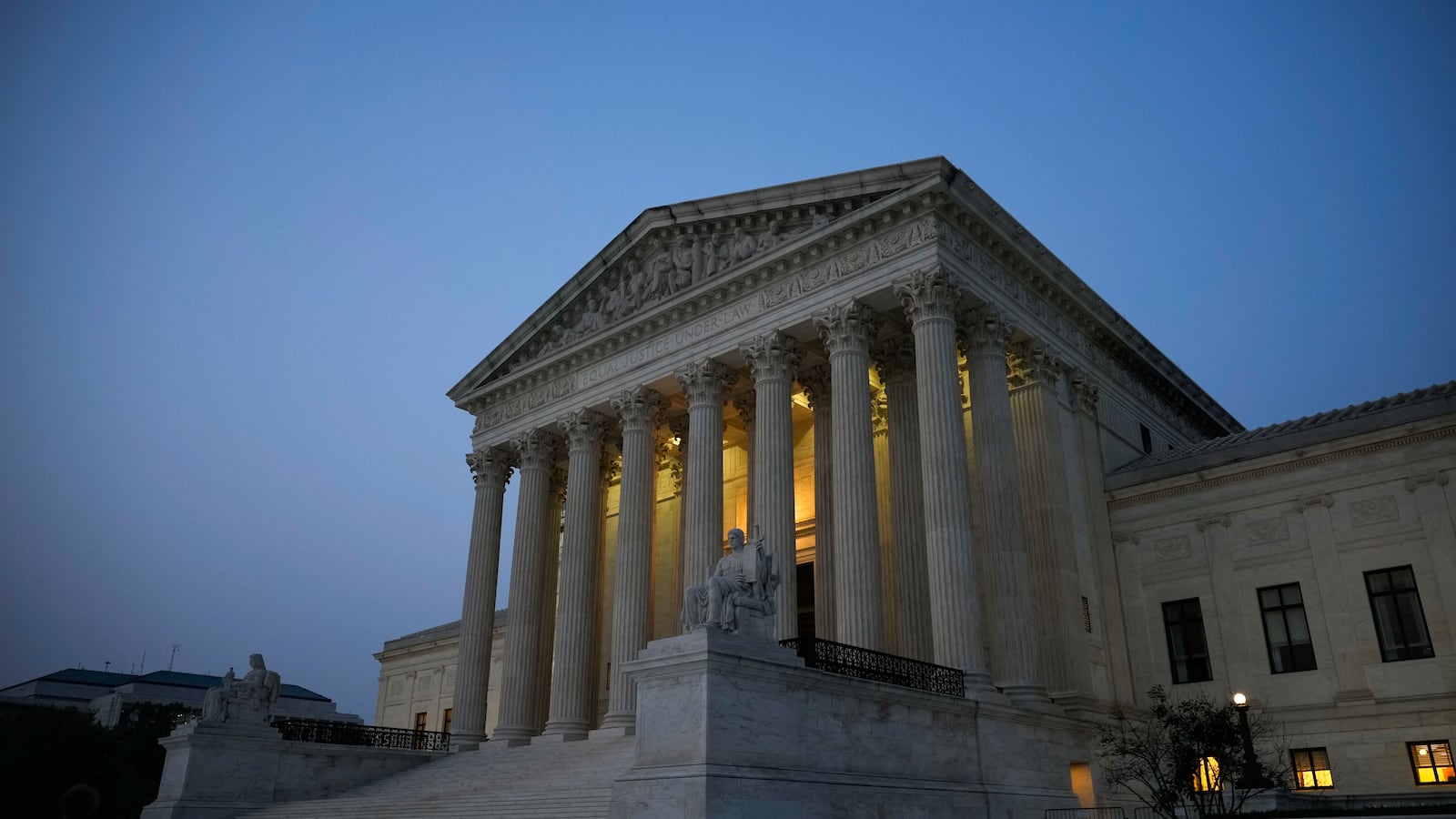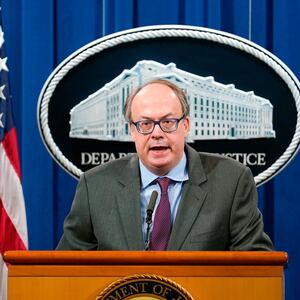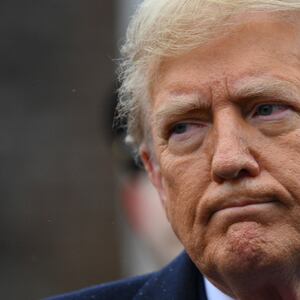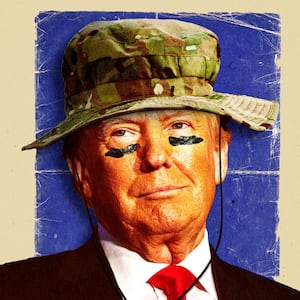Special Counsel Jack Smith on Monday pressed the U.S. Supreme Court to reject Donald Trump’s claim that he is immune from criminal prosecution for attempting to overturn the results of the 2020 election.
The special counsel’s assertion that “no person is above the law—including the president” was backed up in supplementary filings by retired military officials and former Republican lawmakers.
In a friend of the court brief, a group of 19 retired four-star U.S. military generals and other retired high-ranking military officials called Trump’s argument “contrary to the foundational principles of our democracy.” They warned that a ruling in Trump’s favor would undermine a president’s “legal and moral authority” to command military forces, “as it would signal that they but not he must obey the rule of law.”
It would also, they said, “threaten to inject chaos into military operations,” as well as peaceful presidential transitions of power.
“The notion of such immunity, both as a general matter, and also specifically in the context of the potential negation of election results, threatens to jeopardize our nation’s security and international leadership,” they said. “Particularly in times like the present, when anti-democratic, authoritarian regimes are on the rise worldwide, such a threat is intolerable and dangerous.”
In another amicus brief, 13 former appointed and elected officials, including former Reps. Tom Campbell (R-CA) and Tom Coleman (R-MO) and former Massachusetts Gov. Bill Weld (R), argued that siding against Smith could encourage disgruntled future presidents to weaponize the military and “other armed federal personnel” to reverse election results they didn’t like.
In their 66-page filing, Smith’s prosecutors told the high court that Trump’s “novel and sweeping” clutch for absolute immunity was not supported by any “constitutional text, history, precedent, or policy considerations.”
They wrote, “The Framers never endorsed criminal immunity for a former President, and all Presidents from the Founding to the modern era have known that after leaving office they faced potential criminal liability for official acts.”
Smith’s brief marks prosecutors’ last chance to outline their arguments before the Supreme Court weighs the case on April 25—the last day of oral arguments in its current term, according to Reuters.
The late date in the calendar marked a significant victory for Trump, whose lawyers had sought to slow-walk proceedings even as Smith pushed for an expedited trial schedule that would see a ruling handed down well before the 2024 presidential election.
Trump is facing four federal charges related to his alleged scheme to interfere with Joe Biden’s election victory. He has pleaded not guilty, and similarly denied wrongdoing in the three other criminal cases currently ongoing against him.
The former president first sought to have his charges dismissed on the basis of immunity last October. U.S. District Judge Tanya Chutkan, who is overseeing the case, rejected his bid two months later. He quickly appealed and, as the appeals process dragged into the next year, Chutkan vacated his original trial date of March 4.
In early February, an appeals court upheld Chutkan’s decision, with a three-judge panel finding that “any executive immunity that may have protected [Trump] while he served as President no longer protects him against this prosecution.” Three weeks later, the Supreme Court agreed to hear oral arguments in the matter.
In his Monday brief, Smith’s office stated outright that federal criminal law “applies to the President,” and that Trump was trying to get the court to agree with him “unless a criminal statute expressly names the President, the statute does not apply.
“That radical suggestion,” prosecutors wrote, “which would free the President from virtually all criminal law—even crimes such as bribery, murder, treason, and sedition—is unfounded.”









